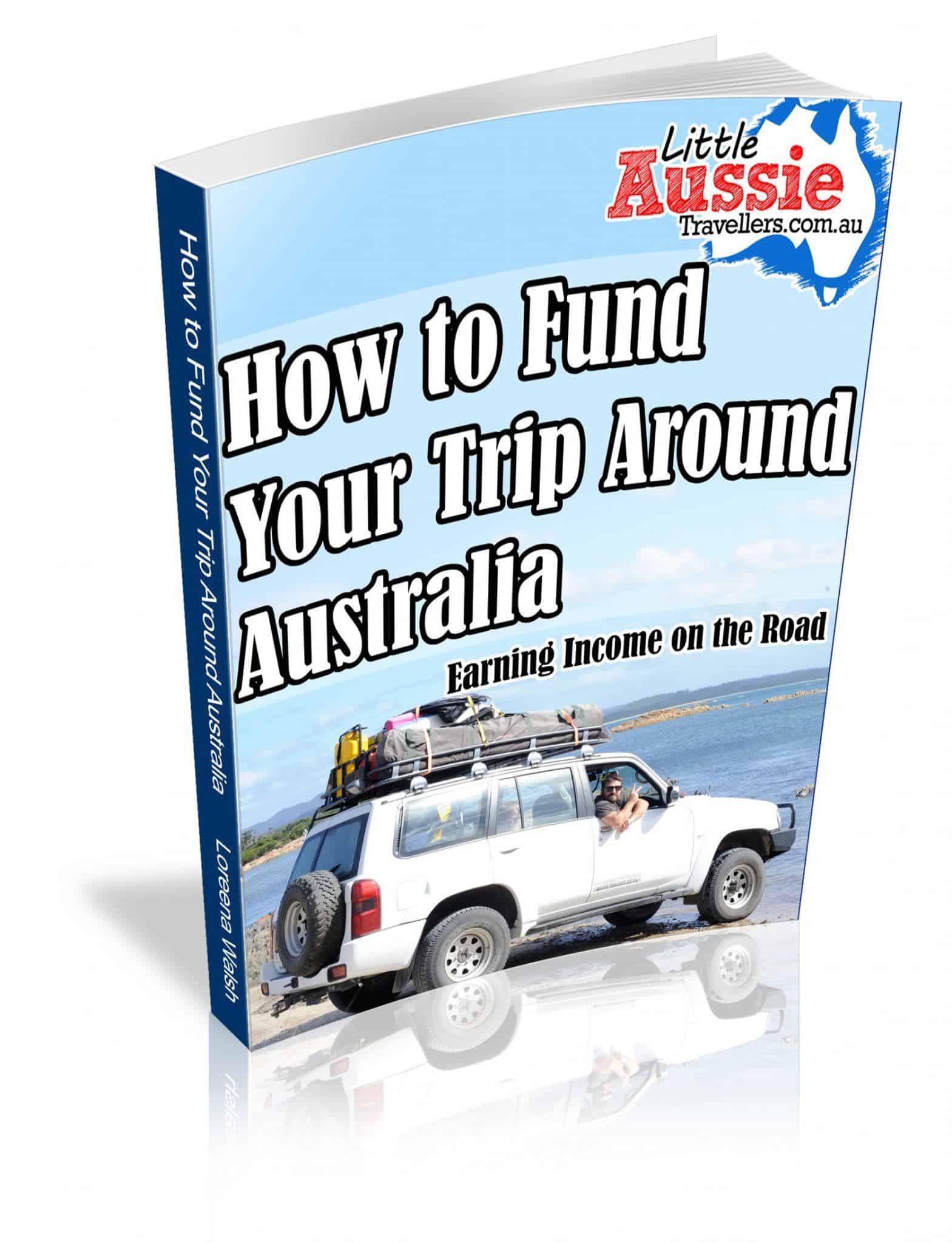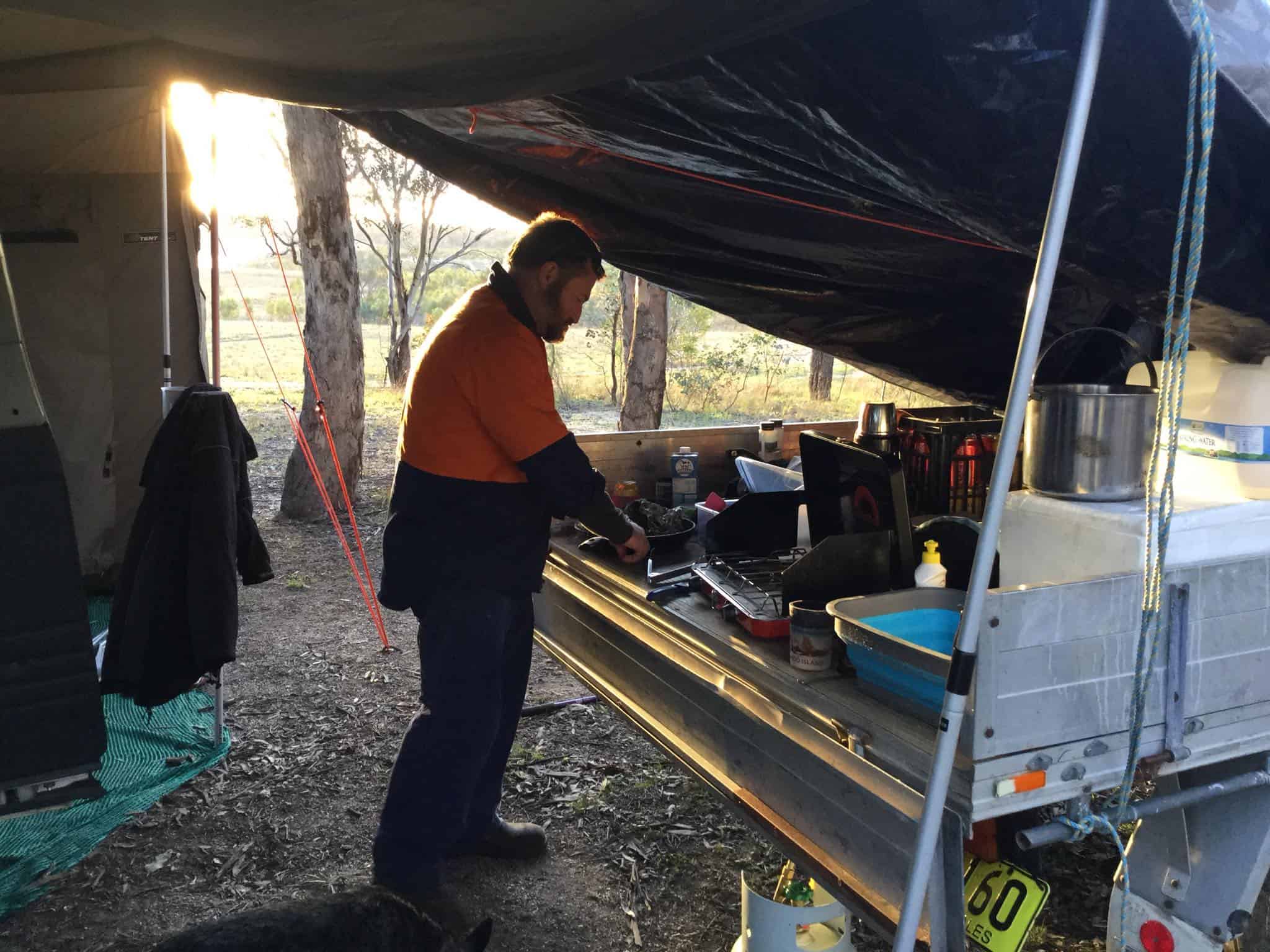
by Loreena Walsh | Featured Posts, Finances & Obligations, Slider Features, Trip Planning
Financial questions like ‘How much does it cost to travel Australia?” are the most common topic we’re asked about from our community and readers, so we thought it might be useful to give some idea of what it could possibly cost you to do a lap around Oz.
Sadly, this question just like many others related to travelling is another “how long is a piece of string” question; one that is highly dependent on your own personal travel choices and desires. For that reason, I can’t tell you exactly how much it costs to travel Australia, but I can give some insight into the typical costs and expenses you’re likely to face on the road, and how some of your choices may help to stretch your budget or swallow it up with great speed.
The average cost we see thrown around tends to be $100 per day, lots of families spend more than this and lots spend less, it depends on your setup and how luxurious or frugal you’d like your travel to be.
If you haven’t started to plan your lap of Australia, then go here first for some insight.
The Biggest Expenses You’ll Face, Travelling Australia.
Your biggest expense on the road is usually one of three things:
For Us The Biggest Expense When Travelling Australia Is Fuel.
That’s because our chosen travel vehicle for our trip was a Nissan Patrol. It’s a great four wheel drive and will get us almost anywhere and it has a very generous tow limit (one of the best on the market), the pay-off for this, is that it is a heavy vehicle, and it likes to drink A LOT of diesel. So, for us, I think at the moment we are getting about 700kms to our 110 litre dual tanks. This can vary on how much of the time we are towing, and the terrain we are towing in. Without towing, we get over 800kms to our dual tanks, and lately, it’s been costing around $140-$160 to fill up. Of course, if we’re in smaller towns or remote areas, diesel is going to cost us a lot more and the cost of filling both tanks is likely to head to $200+.
So, this means for us, if we want or need to move long distances quickly, we’re going to pay the price with a large fuel bill. We spread this large expense out by travelling relatively slowly, and shorter distances at a time.
Free Camping Keeps Accommodation Costs Down When Doing A Lap Of Aus.
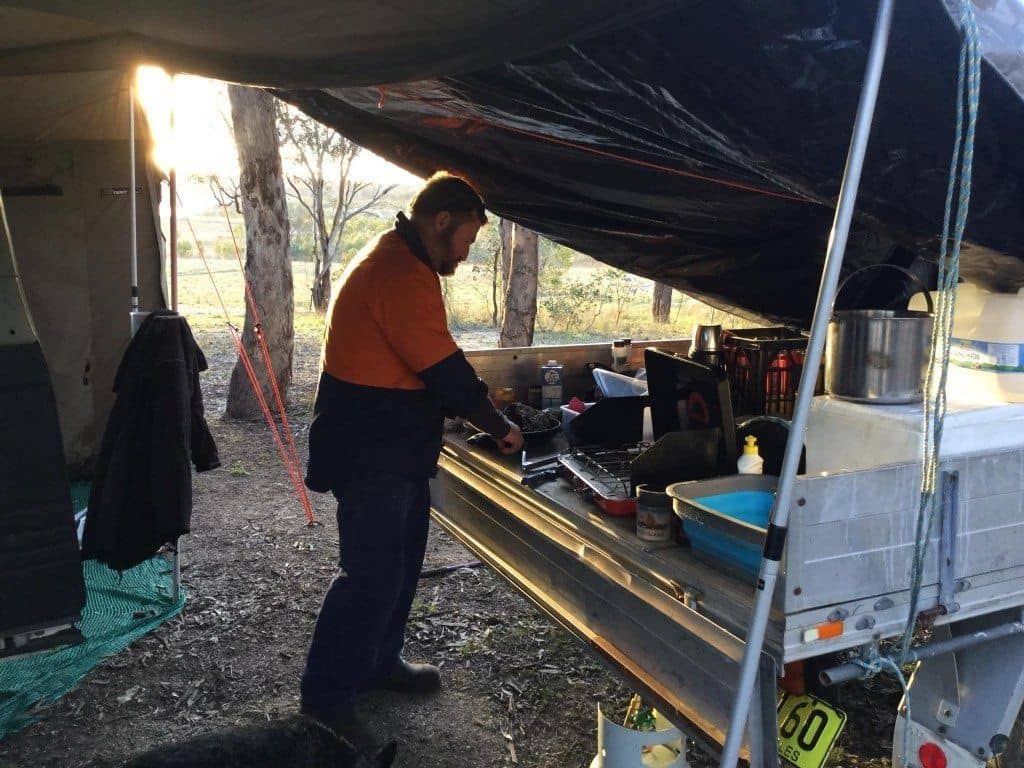
We almost always free camp or budget camp. If we aren’t free camping, we’re budget camping. By budget camping we’re aiming for $20 per night or less. If you don’t like free camping or are not set-up to be self sufficient, then the reality is you’re accommodation expenses are going to be much larger than ours, especially if you’re aiming to stay in caravan parks.
For a family of five to stay in a caravan park, we generally would be looking at paying from $35 (this would be a very cheap park) right through to $120+ per night. It’s really difficult to afford long term travel if required to pay an average of $100 per night for a family.
There is nothing wrong with caravan parks just know this option costs more: Caravan parks have their place, we were always staying in caravan parks before we chose to do some long term travel. Caravan parks are the perfect place for families to stay on holiday. Caravan parks are a wonderful way to take an enjoyable break from the rigours of free camping and enjoy wonderful facilities. Some families are able to budget to stay in caravan parks as part of their journey. For us, we just couldn’t afford it.
There is often tension between long term travellers and caravan park owners. I wish it wasn’t the case, but it occurs because there’s often a lot of pressure forced upon councils in certain areas to close free camping areas so that people stay within caravan parks only. What generally happens in this case is that families and travellers either bypass the area all together or stay only a day or two and move on instead of staying longer and spending more money in town.
There needs to be a balance, and you need to make the choice that is affordable for your family. Setting yourself up to be able to free camp before you leave, will make your travels cheaper in the long run.
Keeping Food Costs Low When Travelling Australia With Kids
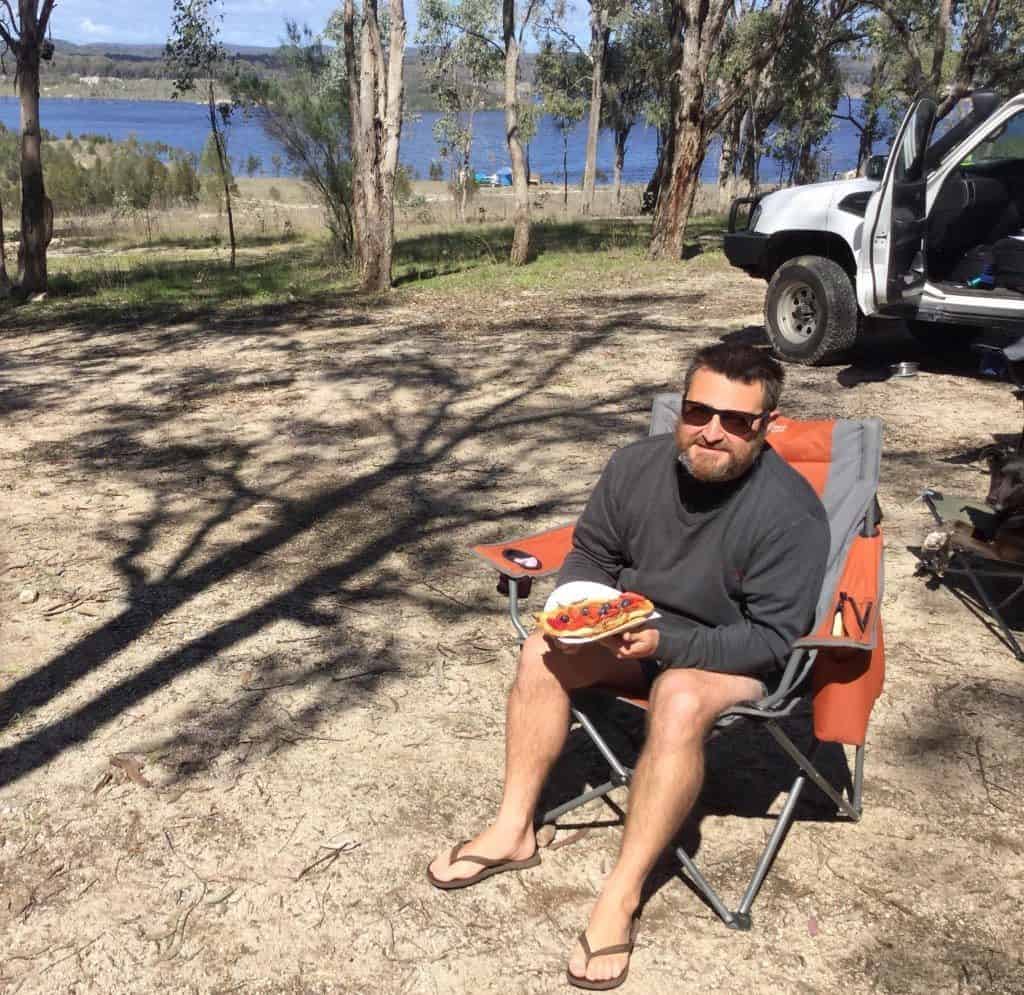
The trick to keeping food costs low when travelling Australia is planning! Planning your food and meals helps you to not only cut down on the expense of the food you buy; it also helps you to minimise any food wastage. There are several points to consider when it comes to food:
- Larger towns and centres will mean cheaper food bills, it’s a good idea to stock up on non-perishables when you’re in areas with access to cheaper food prices.
- Getting creative with staples will help keep your food bills down. Things like rice, pasta, coconut cream, tinned fish, tinned tomatoes and other tinned veggies, flour, sugar and salt will help you rustle up a great meal even when other ingredients aren’t readily available.
- Take advantage of regional produce. While not everywhere in Australia is a food producing region; many of the areas you visit will provide access to beautiful fresh produce directly from the farm gate. Tasmania has an abundance of boutique food providers and food growers and our food bill there was great – unless you’re in a remote area as I mentioned already, then we had to buy smart!
- Plan your meals and DON’T overcook! You’re not going to have the storage space you’re used to in a house, and you won’t have access to a giant fridge either; this means that storage space for leftover is limited! When you do have leftovers, be sure to eat them for the next meal or at the latest the next day, often caravan and camp fridges can struggle so it’s best to eat them quickly and do be sure to re-heat thoroughly.
- Don’t Eat OUT!! Eating from cafe’s or takeaway stores will eat into your travel budget! Pack your lunch, take healthy snacks and only drink water out of a drink bottle you carry with you. This alone will save you thousands of dollars that are better spent elsewhere!
Other Tricks For Saving Money When Travelling & Keeping Costs Down
Don’t go to every attraction you come across: If you saw a zoo or a wildlife centre in the last town, really think about whether you need to visit one at your current stop. Some attractions are well worth the extra expense, some however will be a bit repetitive. Usually you will find free or gold-coin donation entry at local museums and historical centres which will often be a whole lot more beneficial for learning and understanding the region.
Keep Gas Stocked Up in Larger City Centres: We got stuck paying over $40 for a gas bottle refill in a remote area because we just didn’t realise there would be such a big price difference. We could have filled it up for $25 only 50kms before! It was a mistake we didn’t make twice.
Visit Visitor Information Centres For Discounts: Not only do visitor information centres offer a wealth of local knowledge, you’ll also find visitor booklets on display and you’ll often be nicely surprised by the number of coupon vouchers on offer! Any saving is a saving that helps you travel further!
How Much Do You Spend Travelling Australia?
There are so many variables for the cost of travelling around the country that your experience may well differ from ours. Have you got any tips for our readers on how much it costs to travel or how to save money while on the road? We’d love to hear it, just leave a comment below.

by Loreena Walsh | Finances & Obligations, Income & Finances
One of the biggest considerations for families wanting to travel Australia long term is the ability to find and maintain work while on their road trip of a lifetime. Fruit picking and harvesting work is a common income stream for travellers, so it helps to have a yearly guide to where and when this work is available.
Working your way around Australia extends the amount of time you’re able to travel, and gives most families more of a chance to hit the road in the first place. It removes the need to have massive amounts of money saved, and creates a travel itinerary based around slow travel, where time and experience, immersion within communities and a lifestyle change, rather than a fast-paced holiday.
We get a lot of questions asking when to travel to which Australian regions to access jobs such as fruit picking, harvest work, and farm work that tends to be quite seasonal.
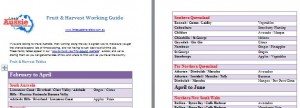 As part of our best-selling ebook “How to fund your trip around Australia“, we included a handy calendar based fruit picking and harvest table which shows a break down of regions offering harvest, fruit picking and farm work around Australia, as well as the times of year they are likely to be looking for workers.
As part of our best-selling ebook “How to fund your trip around Australia“, we included a handy calendar based fruit picking and harvest table which shows a break down of regions offering harvest, fruit picking and farm work around Australia, as well as the times of year they are likely to be looking for workers.
Because those people who have purchased the e-book via the Amazon Kindle, or similar platform may have problems with the formatting of the tables on their device, we’ve included them on site here as a handy .pdf file so that everyone can grab it and print off as a resource to use during their travels.
Click below to download your file, and check out our ebook for more great info on funding your travels.

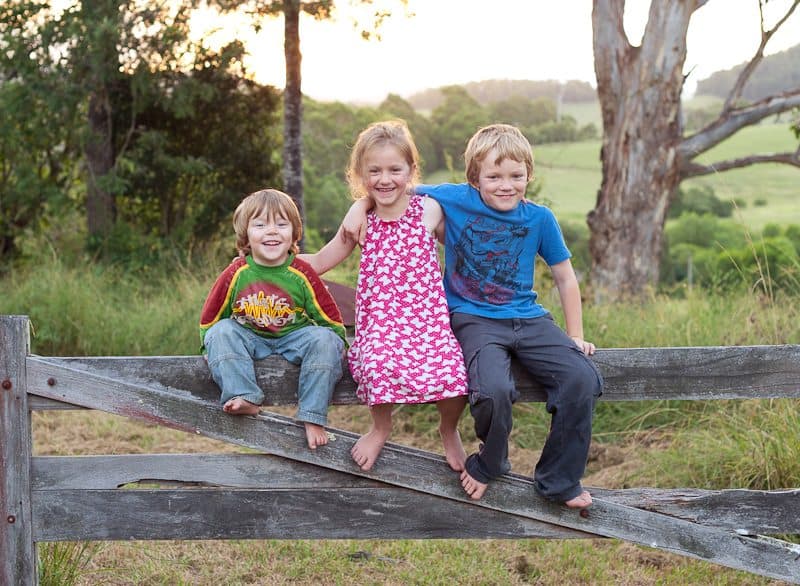
by Loreena Walsh | Finances & Obligations
As you explore your way around Australia, it’s nice to think that it will be a trouble free journey, and hopefully it is.
However, one essential form of preparation for all families hitting the road (or even just at home) is to be adequately insured to protect yourselves from mishaps.
There are many kinds of insurance that are pretty essential for families, so let’s take a look:
[wp_ad_camp_2]
Family Travel Insurance:
· Consider your type of holiday and ensure you covered – some insurance policies won’t cover certain holidays e.g. winter sports you will sometimes have to pay extra to be covered. Make sure you check this before you pay for you travel insurance. Equally make sure you’re not paying for something you don’t need, if you’re only going on a beach holiday with no special activities make sure your policy reflects this.
· Check you-re not already covered – some paid-for bank accounts and credit cards include travel insurance as part of their deal so make sure you’re not paying for a policy when you’re already covered.
· Check what’s covered – make sure you read the small print to see exactly what’s covered, is your policy going to cover you if you miss your flight or lose your luggage? Not all policies do so make sure you know exactly what you’re being covered for.
· Your holiday company isn’t always best – it might seem easy to just add travel insurance when booking your holiday through the same company but be aware they are not always going to be giving you the best deal – make sure you shop around as you could get a much better deal.
Family Health Insurance:
– This is a big one, family health insurance wasn’t something we’d taken out until just recently. The best way to go about health insurance we found, is to think about the following things and find the one that best suits your family:
- What treatments (if any) that your family need on a regular basis.
- How likely you are to use certain health services.
- What rebate you get back at each visit
- The availability of services within your area or areas you are likely to visit
- The expense.
Finding the best prices
Without a doubt finding affordable insurance is important for any family. There are a few ways that you can do this. One way is to speak to your current insurer for car or home insurance, they often have reduced pricing for multiple insurance policies and will offer a wide range of insurance types. Another way is to use a service such as Choosi to find the best pricing in one place, it will save you shopping around.
One thing is for certain, when you take the time to insure your family for travels, be sure to choose the right amount of cover that will be required should anything go wrong, as being under-insured can be worse than being fully insured.

by Loreena Walsh | Finances & Obligations
So you want to travel Australia, but you’re not really sure you can afford it? Wondering how to make money on the road? How to finance a travel lifestyle?
As scary as it may sound to leave the security of a job behind, (is any job really secure though?) The reality is with a bit of flexibility and willingness to try new things, almost anyone can find work while travelling Australia.
While there’s always options to try and learn new skills when living on the road, the first option is to use what you know to gain employment.
Use Your Current Skills to Find Work While Travelling:
Almost everyone has skills that they can use to earn income while travelling Australia. Whether it’s life skills, business skills, a trade, or in demand qualifications, finding work is just a matter of being entrepreneurial or knowing where to look.
For workers such as electricians, plumbers, builders, painters, mechanics and similar industries, establishing yourself with a business ABN, suitable insurance cover, business or trade licenses that are recognised in the state you’re travelling, and the necessary tools to carry out work as you travel are essential preparations.
Other industries that allow you to take your skills on the road include things such as hairdressing and beauty services, food and hospitality services, office and administration, teaching, nursing and health services, farming skills and much more.
How to Find Work While on the Road?
Advertise: One of the easiest ways to find work when travelling, if you have a skillset that allows you to work indepenently for yourself is to advertise that you’re available. Have professional signage made for your vehicle, or even caravan so that people know what you do when they see you. This works especially well for industries such as mechanical trades, but also for hairdressers and beautcians who might be able to service other travellers. If you’ll be in town for a while, consider noticeboards or even the local paper to get your name out.
Act professionally: Have a business card, professional resume or portfolio. At least one of these will be useful no matter what industry you work in.
Ask: You might be surprised just what work is around that you can find out about simply by asking. If you have skills in hospitality speak to pubs, clubs, restauarants, motels, caravan parks, or any other business your skills may be useful to. Many places do not advertise, but are often on the lookout for casual staff. Always have a resume or portfolio ready if necessary, and let the business know how long you’ll be staying in their region for.
Use Employment Agencies: While many travellers prefer not to use agencies, they can be a great starting point for getting some idea about the types of work that are readily available within a region. It never hurts to ask, and even if they don’t have anything that currently suits you they may have leads for you to follow in your pursuit for work.
Word of Mouth: Don’t forget to ask other travellers you meet where they’ve been able to find work while travelling. This works well with industries such as farming, fruit picking and hospitality. Always try to get a contact name if possibly and write down the details ready for when you arrive in the same area.
Newspapers & Internet: Don’t forget to check out local newspapers, or online job sites ahead of your arrival and while you’re enjoying your stay in an area.
Turn Your Hobby Into an Income:
If you have a hobby or income it’s often possible to turn your passion into a money maker. While it may not lead to extreme riches, many travellers find that by creating and selling goods or services it allows them to travel for longer and further than might have otherwise been possible.
If you enjoy sewing clothes, knitting and crochet, writing, toy making, painting or any other large number or hobbies, it’s easy to get started selling your creations. There are websites such as etsy and madeit making it easier than ever to share your creations with the world, and local markets are for the most part inexpensive to set up at, and can open you to meeting new people and making a little extra cash at the same time.
The reality is, that while you may not always land in your dream job while travelling, being willing to be creative and flexible with how you work and in what industry or position, can allow you to live a dream lifestyle travelling Australia with experiences so few ever get to enjoy.
[wp_ad_camp_2]
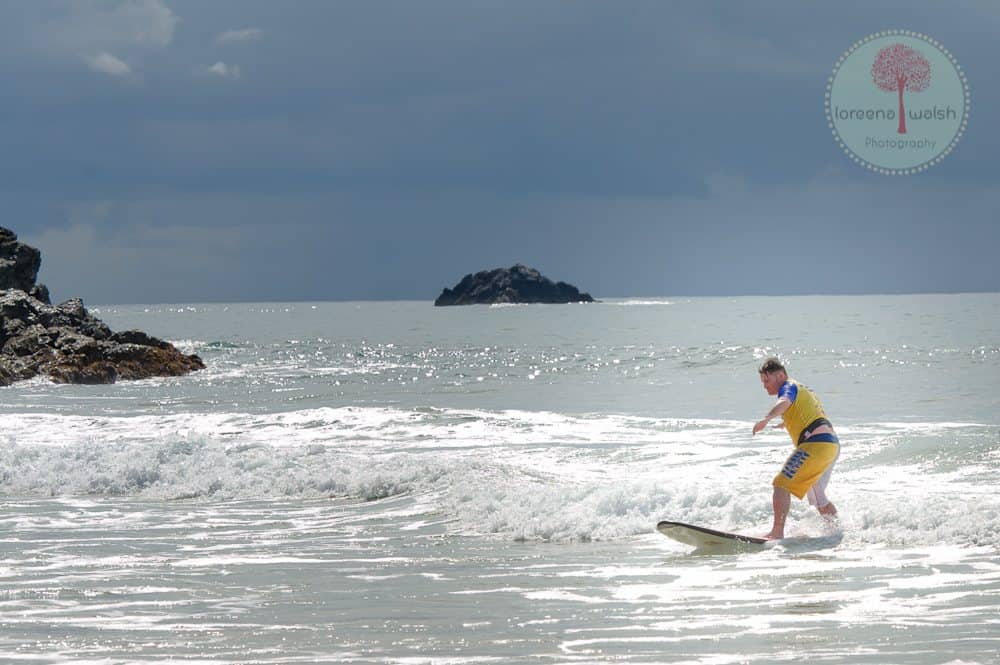
by Loreena Walsh | Featured Posts, Finances & Obligations
You don’t have to be a millionaire to live the life that you dream of. To succeed and fulfill our goals just takes passion, love, courage, vision and some hard work, it’s with that recipe anything becomes possible.
As life seems to flow by ever so fast, as another year comes to an end, it’s time for me to reflect on what got us to this point and what we plan to achieve for 2012. Our plan is simple really, to save money. To save so we can explore Australia with our children. As we move into our 30’s this decade, where we really get to know our children, where we really get to spend some amazing moments with them before they move on to live independently, I think it’s a decade we will cherish in our lives. I know one thing for certain, it’s a decade I’m not willing to let pass by in a blur of fitting in with social standards.
It occurs to me that for many years we’ve wanted to travel and explore, but while many things stopped us, the overwhelming reason was affordability. I mean, who can afford just to leave everything behind and travel right? WRONG! I’ve learned a lot about both myself and my little family, and the world at large over the past few months: Unless you are truly ready for something, it’s not going to happen. Unless you TRULY want to achieve something, then you’ll always find an excuse!
I honestly believe that ANYONE can achieve their dreams, but you have to be willing and ready for hard work and sacrifice to get there, and that’s the point we are at right now!
How We’re Saving to Travel Australia
When you have a goal and you’ve thought about it for long enough, if you really want it, there comes a time when you realise there’s no way it will happen if you don’t make it. That’s where we’re at. So in order to travel Australia we need to save money. We need to be smart with our lives, we need to remain focused. We need to cut spending. In order to do that we are:
- Moving House – Cheaper rent in an old house close to work means saving an estimated $8000 a year on rent and petrol bills!
- Cutting off Pay TV – Saving ourselves a grand total of $1350
- Selling off all our “things” we don’t need
- Menu planning to reduce food wastage and allocate for packed lunches instead of buying them during the week
- Not buying by impulse – There’s lots we’ll want but truly little we will need!
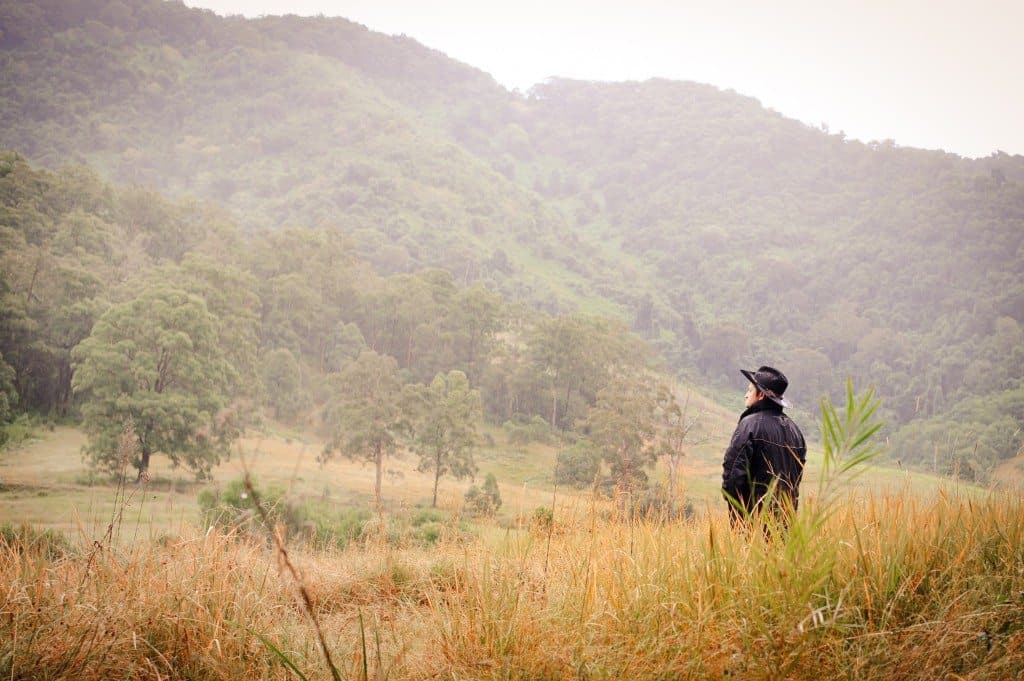
Where we’ve come from:
It’s amazing how we change and grow as people. Not just myself and Matt, but everyone, generally. If you talk to most people, their ideals and goals in life are a continually changing and evolving. Different passions come and go, and are replaced by new passions, new vision and new exciting forecasts for the future. It’s what makes life so interesting and what keeps things exciting.
I’m not sure if we’ve changed as people, or we’ve become more confident, allowing ourselves to be true to who we really are regardless of how different that may be to what society accepts. We’ve spent the last decade of our lives trying to break away from our past, carve new destinies and try and figure out how best to raise a young family and provide our children with a wonderful childhood, and opportunities that we perhaps didn’t have due to financial constraints.
We’ve spent the last decade faced with the mortality of close family members, left behind holding onto nothing more than memories of those we loved dearly. It was those losses that led us to an appreciation of cherishing moments over material posessions.
We’ve started and grown businesses, successful ones! Made and lost friends, had great parenting successes and many failures too! Been tortured from lack of sleep, but most of all we’ve taken as much time as we could to explore nature, explore this amazing country and allow our children to wallow in mud and experience amazing sunsets and everything in between.
How We’re Looking Forward for 2012
We’ve realised what we want. It’s that simple. We want to spend as much time as we can experiencing Australia with our kids. We want others to know that they can achieve their goals too, and we’re going to prove that anything is possible! Succeeding with our dreams is something that’s going to take both sacrifice, hard work and passion, but we’re signing on whole hearted for the journey and we’re looking forward to sharing the ride with everyone we know and all the amazing people we’ve been busy meeting online too.
How have you made your goals come true? Any tips to bring dreams into reality?

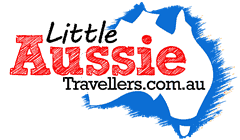



 As part of our best-selling ebook “
As part of our best-selling ebook “








